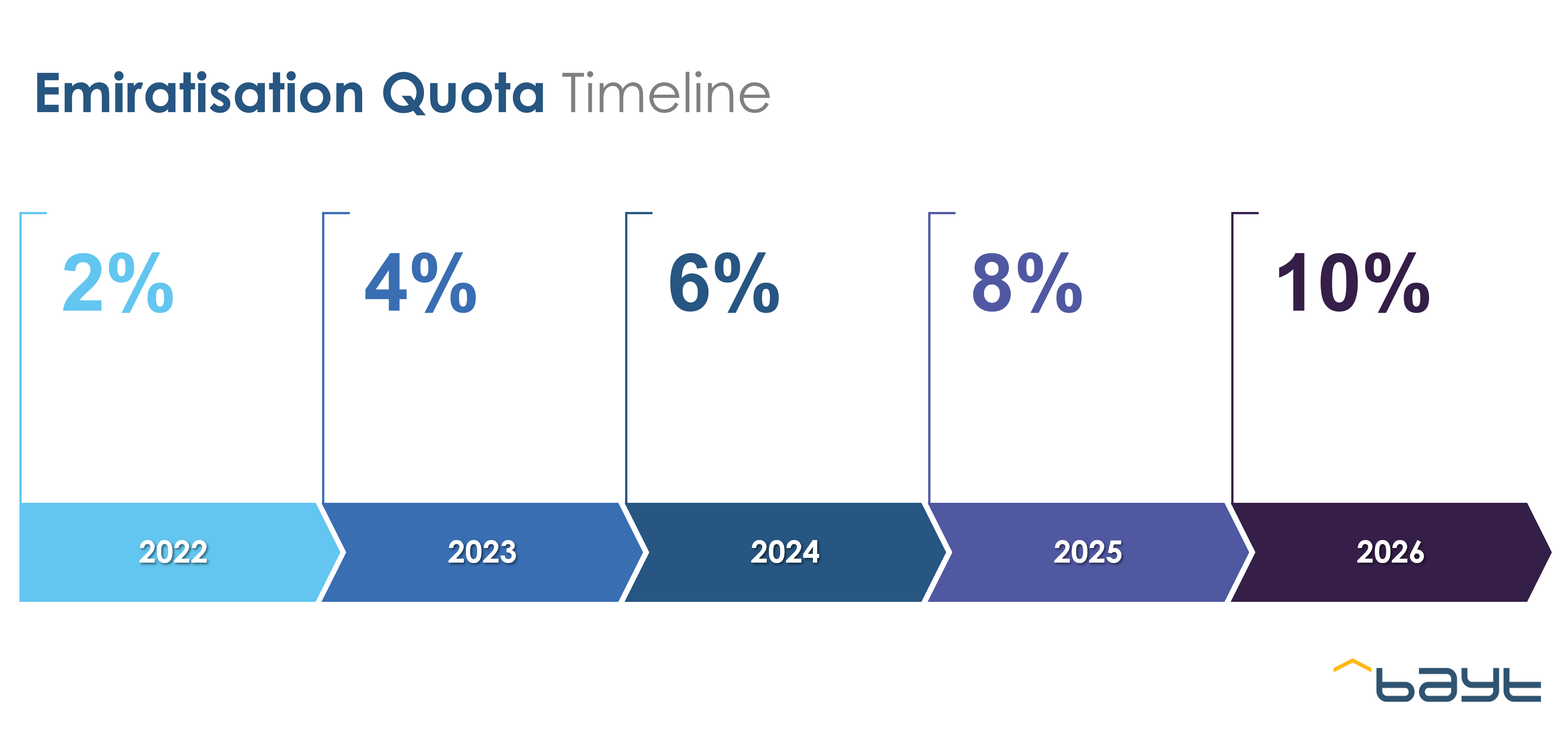
In 2022, UAE’s Ministry of Human Resources and Emiratisation (MoHre) announced that companies with more than 50 employees need to meet the Emiratisation targets of 2% of their total workforce.
In 2023, MoHRE announced that AED 400 million was fined to the companies that failed to meet the criteria. Furthermore, the ministry has literally doubled down on the targets, calling for hiring 4% Emiratis in 2023.
In line with the UAE Cabinet Resolution to raise Emiratisation rates, #MoHRE started applying financial contributions to private sector companies for failing to achieve the 2% Emiratisation targets stipulated for 2022, to reach 10% by the end of 2026. pic.twitter.com/WgmONVz7Hx
— وزارة الموارد البشرية والتوطين (@MOHRE_UAE) January 6, 2023
Emiratisation is a government-led initiative in the United Arab Emirates (UAE) that aims to increase the number of UAE nationals in the workforce. One of the main ways that emiratisation is being achieved is through the implementation of quotas for UAE nationals in the private sector. These quotas require companies to hire 2% national of their total workforce incrementally from 2023, which means it’s 4% this year.

Overall, Emiratisation is a key initiative for the UAE government to support its citizens and diversify its economy. Still, it’s important for companies to comply with the quotas and regulations set by the government to avoid penalties.
Employers in the MENA region are facing increasing pressure to hire more locals in order to meet their quotas and avoid penalties. Hiring needs for UAE nationals vary depending on the sector. Some sectors like oil and gas, finance and banking are more attractive to UAE citizens than construction, retail and hospitality. Hence, the government is actively working on developing the education and training programs to prepare UAE citizens to work in different sectors.
It is important for companies to understand their hiring needs and develop strategies to attract and retain UAE nationals. Moreover, it’s essential to meet their quotas and comply with the regulations set by the MoHRE.